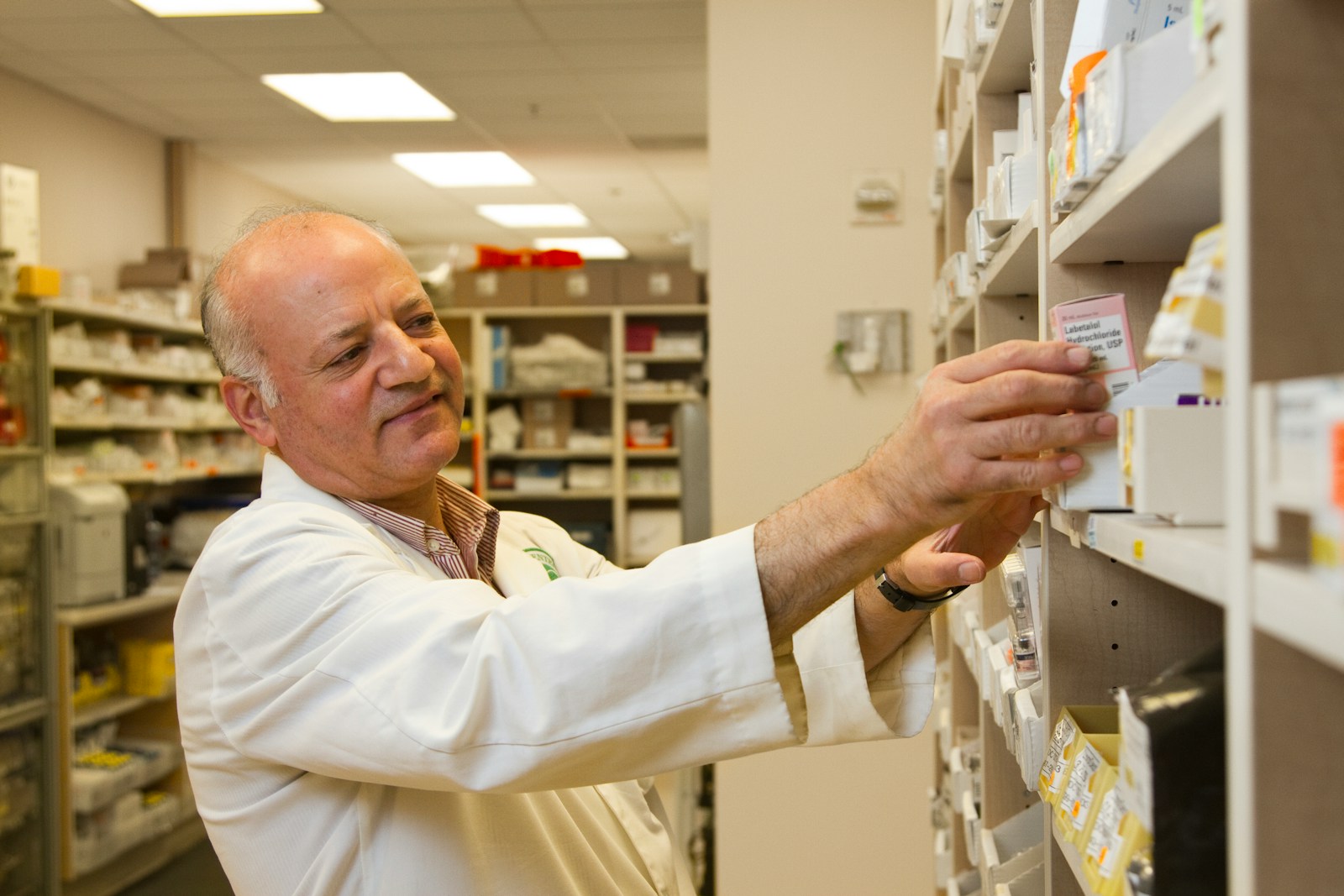Pharmacist is one of the most important health professionals involved in minimizing medication risks while maximizing the benefits from the medicines. They are very important in a patient’s therapeutic process because they help the patient to get the right medicine after a consultation with the doctor and are knowledgeable if the medicine is used properly and what could happen if it is not used according to instructions. They practice in such areas as community, clinical, and hospital pharmacies, research facilities and other employed health care facilities.
That is why today pharmacists are required to discuss drug interactions, identify potential adverse effects, and coordinate the actions of healthcare professionals who work with patients, as well as to monitor their health. This career requires an ability to consider every detail, sufficient knowledge of pharmaceutical science, problem solving skills, and interpersonal skills to help patients and other teams of health care.
Resume Description for This Job
Since resume preparation is tasked for a pharmacist position, it is crucial to point the technical expertise, clinical experience as well as the ability to provide patient care properly.
Sample Resume Description:
“Licensed Pharmacist with over 5 years of experience in retail and clinical pharmacy settings. Skilled in accurately dispensing medications, counseling patients, and managing pharmaceutical inventory. Adept at ensuring compliance with regulations and providing exceptional healthcare services.“
Key Skills to Highlight:
- Proficiency in pharmaceutical calculations and medication dispensing.
- Strong knowledge of drug interactions, side effects, and proper usage.
- Ability to counsel patients on prescriptions and over-the-counter medications.
- Experience in managing inventory and ensuring regulatory compliance.
- Excellent problem-solving and communication skills.
Feel free to adjust details to better match your experience!
Salary (Based Range in USA)
Pharmacist salaries in the U.S. vary depending on experience, location, and work setting.
- Entry-Level Pharmacist: $100,000 – $120,000 annually.
- Mid-Career Pharmacist: $120,000 – $140,000 annually.
- Experienced Pharmacist: $140,000 – $160,000+ annually.
The average hourly wage for pharmacists ranges from $50 to $75 per hour, with higher rates for specialized roles or positions in metropolitan areas.
Responsibilities

Pharmacists perform a wide range of duties to ensure the safe and effective use of medications.
Medication Dispensing
- Review and fill prescriptions accurately based on doctor’s orders.
- Verify dosages and ensure the proper labeling of medications.
- Prepare and compound medications when necessary.
Patient Counseling
- Educate patients on the correct use of prescribed and over-the-counter medications.
- Provide guidance on potential side effects and interactions with other drugs.
- Offer advice on lifestyle changes and preventive healthcare measures.
Collaboration with Healthcare Providers
- Consult with doctors and nurses to clarify prescriptions and recommend alternatives.
- Monitor patient responses to treatments and adjust therapies as needed.
- Assist in managing chronic conditions by optimizing medication plans.
Regulatory Compliance and Inventory Management
- Ensure compliance with federal and state pharmacy regulations.
- Maintain accurate records of prescriptions and controlled substances.
- Manage pharmaceutical inventory and order supplies as needed.
Specialized Responsibilities
- Administer vaccinations or other treatments if certified.
- Participate in research or clinical trials to develop new medications.
- Educate healthcare staff on new drugs and pharmaceutical technologies.
Qualifications
Becoming a pharmacist requires a combination of rigorous education, licensure, and personal skills.
Educational Requirements
- A Bachelor’s degree in a related field (e.g., biology or chemistry).
- A Doctor of Pharmacy (Pharm.D.) degree from an accredited institution.
- Completion of internships or residency programs for specialized training.
Licensure and Certification
- Pass the North American Pharmacist Licensure Examination (NAPLEX).
- Obtain a state-specific license to practice pharmacy.
- Optional certifications in areas like oncology, nutrition, or geriatric pharmacy.
Skills and Competencies
- Attention to Detail: Accuracy in dispensing medications and reviewing prescriptions.
- Communication Skills: Ability to explain complex medical information to patients clearly.
- Problem-Solving Skills: Resolving prescription issues and recommending alternatives.
- Technical Knowledge: Proficiency in using pharmacy software and equipment.
- Empathy and Patience: Supporting patients through medical challenges.
FAQs
Q1: What is the role of a pharmacist in healthcare?
Pharmacists play a crucial role in the pro-positive progression of health care delivery since they are fully responsible for administering the right medicine to the patient, overseeing the impact of the administered treatment, and/or educating the patient on the right method of using the medicine alongside other medicines.
Q2: Can pharmacists specialize in certain areas?
Indeed, pharmacists can choose to practice in various specialized areas of practice such as oncology, pediatrics, cardiology or geriatric pharmacy. The program may require extra certifications for specialization.
Q3: How long does it take to become a pharmacist?
In general, it may take 6-8 years of an individual’s time, for the acquisition of a bachelors degree (although this is not a requirement), Pharm.D program (4years) and passing the license exams.
Q4: Are the jobs of pharmacists limited only to drug retailing in pharmaceutical stores and other outlets?
No, pharmacists are employed within the areas concerning hospital, research, pharmaceutical industries and even education. Some even work independently for insurance companies or the government.
Q5: What kind of problems do pharmacists have?
This is due to a high turnover of prescriptions as well as employing ways of getting updated information concerning new medications, dealing with patient’s concerns and meeting legal requirements thereto.
Conclusion
Pharmacist career path can be fulfilling and relatively making a difference within societies by enhancing people’s wellbeing. With strong demand for skilled professionals in this field, individuals who pursue the necessary education and develop key skills can enjoy a fulfilling career with excellent compensation and growth prospects.
